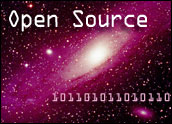Mission Critical Linux provides support solutions and professional services to companies, including e-commerce operations, that are placing infrastructure investment and faith in the Linux open-source operating system. Just recently, the Lowell, Massachusetts-based firm increased its portfolio of e-commerce-related offerings by partnering with vendor TurboLinux to makepowerful clustering technology solutions available to its clients.
In the following interview with company president, CEO and founder Moiz Kahari, conducted as he was preparing to speak at the European Linux@Work Conference, the E-Commerce Times exploresall things Linux and the operating system’s role in the future of e-commerce.
Q What is the background of your company and its involvement with Linux?A We come from the corporate computing background, where most of us have been involved with enterprise and high performance computing for overfifteen years. Most of us were involved with the development of DIGITAL UNIX, which is the Tru64 UNIX product.
We completely believe in the open-source movement. We recognize the opportunity where the need for having a mission critical support services provider was vitalin allowing the Linux movement to move into the enterprise space. Having recognized that, we tried to pull together a strong team to go after that particular market space.
Instead of having the classic consultant model, we’ve stepped back and looked at the Linux environment to figure out what’s missing out there and what we can do technology-wise to really differentiate ourselves. And then we went out and developed those technologiesin house, and we set the appropriate processes around those technologies that could marry our engineering with the technology that was available.
Q Red Hat chairman Bob Young came out in print recently to debunk the notion that “open-source is a dead-end.” What are your thoughts?A Is open-source a dead thing? I would say absolutely not. I think this movement is here to stay. Are pure open-source companies that do not differentiate themselves at all the best models? Maybe Bob Young would argue that those are the best models, and he’s an extremely intelligent person and so I don’t want to take him on with regard to any arguments. But I’m not convinced that everything needs to be open-sourced.
 Bob Young, Red Hat Chairman and co-founder
Bob Young, Red Hat Chairman and co-founder![]() I am convinced that investors and the marketplace itself wants you to differentiate yourself from every other offering. I think there has to be a balance of open-source and proprietary differentiators, which you need to present to the marketplace and position yourself appropriately so you can actually compete against the big giants out there.
I am convinced that investors and the marketplace itself wants you to differentiate yourself from every other offering. I think there has to be a balance of open-source and proprietary differentiators, which you need to present to the marketplace and position yourself appropriately so you can actually compete against the big giants out there.
Q Why has Linux received so much attention?A I believe that the operating system itself is one of the keycomponents of any computing environment. You can have hundreds of different types of applications you may want to run, but the operating system is necessary. People became tired of the proprietary operatingsystems. They wanted something that was a little more shareable and controllable.
At the same time, I think your second question will probably be, “then why not BSD (Berkeley System Distribution) or FreeBSD?” Because here’s another open operating system, and I believe there are certaindifferences in it.
The GNU Public License allows you to do anything you want with this operating system, as long as you’re willing to share the changes you make to the operating system itself. With FreeBSD, the licensing was a little more complex and maybe companies and individuals didn’t feel as comfortable making changes andcontributing those changes back because they felt there were more loopholes where people could hold back some of their changes.
And it’s all about timing as well. I’d rather be lucky than smart any day. So, who knows why?
Q Is a breakup the right way to go with regard to a remedy in the Microsoft antitrust case?A I can answer that question two ways. First,as the president and CEO of Mission Critical Linux, I would say that absolutely, the breakup of Microsoft is the only way to go, because you’re breaking up this giant, monolithic entity. Subsequently, you’re going to create new markets that just don’t exist out theretoday. From a Linux point of view, that’s very exciting, because what it does is when you break up an applications company from under this operating systems company, that applications company has every reason tocompete on every single operating system. When their products are out on the Linux operating system, I believe that the growth rate for Linux, which is already twice as fast as any other operating system, is goingto multiply and go through the roof. So, that’s extremely exciting.
Now, if I step back and answer that question on a personal basis, I would say that it would be nice to just leave successful companies alone. Let them get as big and powerful as they can. So, I can see it both ways, sharing some of the concerns that the people at Microsoft might have.



































Social Media
See all Social Media